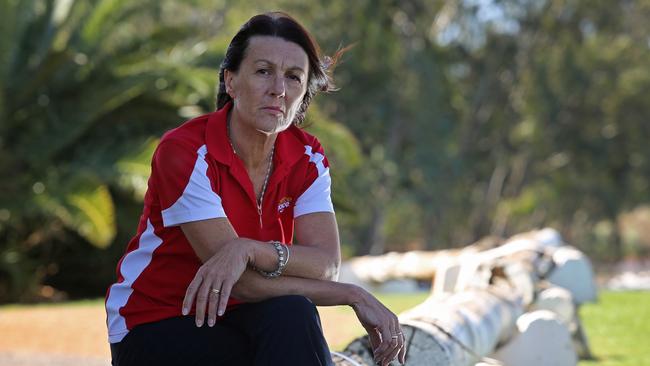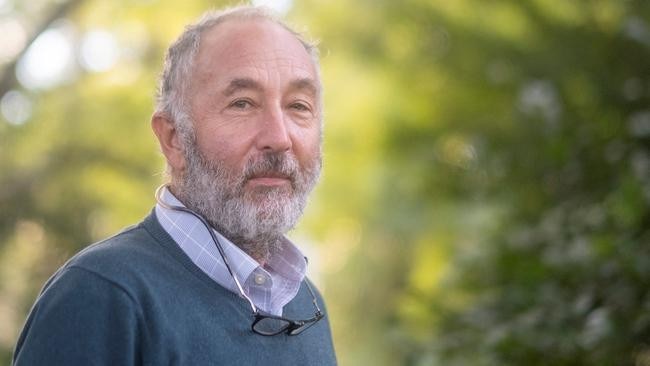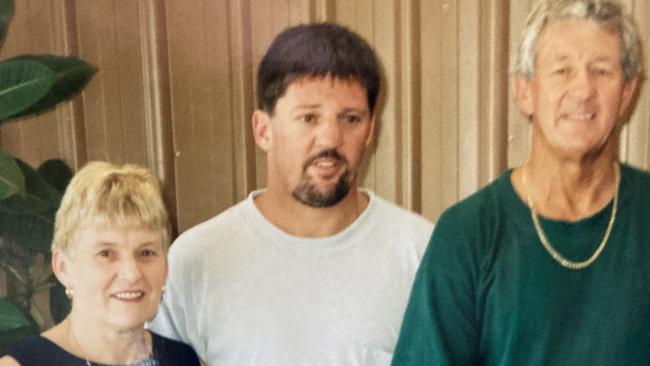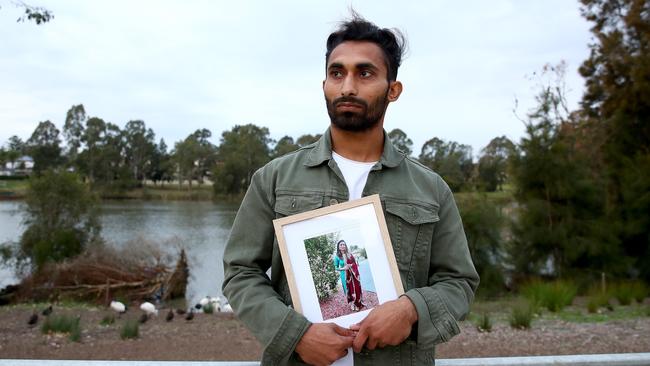Thousands of NSW court cases thrown out on mental health grounds
The number of local court offences dismissed on grounds of mental health is rising in NSW, but the bar to qualify for these dismissals is ‘far too law’ according to a victims advocate.
Police & Courts
Don't miss out on the headlines from Police & Courts. Followed categories will be added to My News.
Thousands of people are having their criminal charges thrown out of the state’s local courts on mental health grounds, but the bar to qualify for these dismissals is “far too law” according to a victims’ advocate.
The number of local court offences dismissed due to mental health has risen to 2.4 per cent, up from 1.7 per cent five years ago, with experts warning it was becoming more common for people to get off on offences such as domestic violence and drink-driving.
Wendy Robinson became an advocate for victims’ rights after her brother Scott Settree shot and killed their parents Ian and Margaret following a dispute about a $40 bottle of wine at Cobar in 2014.
He was found not guilty of murder because of his mental illness — a decision that “felt like a slap” in Ms Robinson’s face.
“I have sympathy for people with mental illnesses, and I recognise mental health issues,” she said.

“But the bar has become so low for people to claim a mental illness, they just need a psychiatrist to say they have depression or anxiety and they’ve escaped a criminal record for driving drunk or domestic violence.
“It’s become too easy and too common.”
Ms Robinson, who successfully lobbied the NSW government to replace the special verdict “not guilty by reason of mental illness” with “act proven but not criminally responsible”, said she believed more needed to be done to protect victims.
“My brother had a string of charges before he killed my parents, none of those were treated as mental health. So why was the fact he killed them treated differently,” she said.
More than 3300 offences were dismissed by NSW local courts due to mental health in the year to June 2023 (2.4 per cent of cases) – up from the 2200 cases that were dismissed in 2019 (1.7 per cent), according to data from the Bureau of Criminal Statistics and Research.
Mental health dismissals are also increasing in the Children’s Court, with 7.1 per cent of defendants escaping conviction due to mental health in the year to June 2023 – almost doubling from 3.8 per cent in 2019.

Former magistrate David Heilpern, who sat on the bench for 22 years, said arguments for matters to be dealt with under mental health legislation went from being a “rarity” to something that was happening “incredibly regularly”.
“I would never have seen (a mental health application) for a drunk-driving matter in my first 10 years as a magistrate – but even those people were making applications under Section 14 by the end,” he said.
If a mentally unwell person does end up in the court system, their lawyer can undertake what is known as a “Section 14” application to have the offences dismissed under mental health grounds.
If successful, Section 14 allows a person who is charged with a criminal or traffic offence and suffers from a mental health impairment or cognitive impairment to avoid a finding of guilty and criminal record in the local court.
Mr Heilpern, who is now Dean of Law at Southern Cross University, said while the increase in Section 14 applications reflected a greater focus on mental health in the courts, there were times when it should not be relied on as a defence.
“I saw a massive expansion in the use of Section 14 during the time that I was on the bench, that shows we have expanded recognition and acknowledgment of mental illness and that’s a good thing,” he said.
“But on the other hand, whether that should mean people escaped criminal liability, particularly for things like drunk driving and domestic violence offences is a really difficult question and it certainly gives me pause for concern.”

According to BOCSAR statistics, more than 8 per cent of all offences against government security — which includes terror-related charges — were dismissed under mental health grounds in the local court last year.
More than five per cent of all domestic violence related assault offences were dismissed due to mental health – jumping from 3.6 per cent in 2019.
Mr Heilpern said the courts often became a place for mentally ill people who had “fallen through the cracks” – and that greater support services were needed in the community.
“It is not the fault of the police, but it is often the case that if they can’t get a person into the mental health system, then they go down the criminal route,” he said.
“Then you’re sort of stuck with these very unwell people committing relatively minor crimes, without any of the kind of assistance they really need.”
Mr Heilpern said once in court – a person can be sent for a medical evaluation, but are often returned to the court system and told they are OK.
“I had experience of someone being returned, with a health professional saying ‘no, nothing wrong with them’ when they were barking like a dog and saying the walls were talking to them,” he said.
“And then you’re faced with this awful dilemma of do you send them to jail or do you grant them bail on conditions that they can’t meet because they are chronically unwell.”

Criminal Lawyer Matt Ward backed Mr Heilpern’s concerns, saying many crimes in NSW are either directly, or indirectly, a result of someone’s mental health or cognitive impairment – meaning support and intervention prior to the courts was crucial.
“It is complicated and challenging at times for the court to use the blunt instrument that is the criminal law to try and properly address a person’s underlying mental health issues,” he said.
While Section 14 does not extend to higher courts like the NSW District and Supreme Courts – people can still be found to have committed an act but are “not criminally responsible” due to mental health.
Of the 65 cases that went through the NSW Supreme Court in the 12 months to June last year – eight people were found not criminally responsible due to mental health.
Just last month, a man who killed his girlfriend in a drug-induced psychosis had his conviction quashed after he was diagnosed with schizophrenia.
In October 2022, Jordan Brodie Miller was sentenced to a maximum of 20 years’ jail for murdering 18-year-old Emerald Wardle. However, the Criminal Court of Appeal quashed the conviction, and he was found not criminally responsible for her death due to his mental health.
Baltej Singh Lailna was last year cleared of criminal responsibility after stabbing his wife Kamaljeet Sidhu to death at their home at Quakers Hill in 2020 during a psychotic episode.
Just one day before her tragic death, Ms Sidhu had taken her husband to hospital for his persistent paranoia, however he was released into her care with a follow up mental health appointment booked.
But that appointment never happened, with Lailna killing his wife at their home less than 24 hours later.
“I’m so angry because if they kept him at the hospital my sister’s life could have been saved,” Ms Sidhu’s brother Jaspreet Singh told The Sunday Telegraph at the time.
Got a news tip? Email weekendtele@news.com.au





